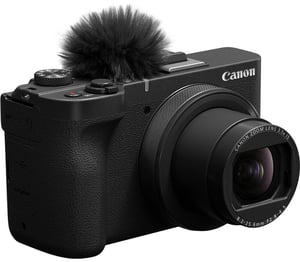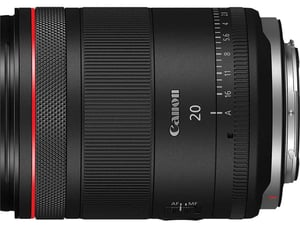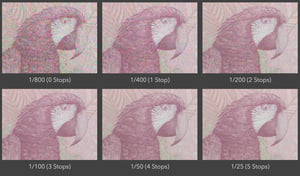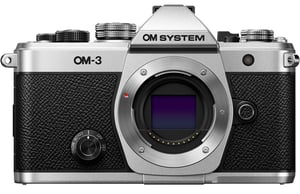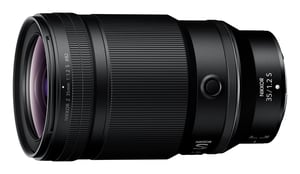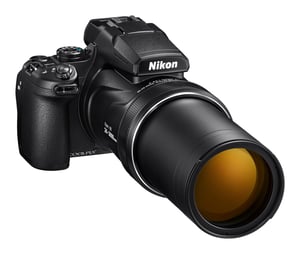In-body image stabilization, or IBIS, has become quite good at providing stabilization for photos at moderately low shutter speeds. But IBIS is not great for handheld video, and that's where video gimbals come in. These handheld devices use much larger motors to provide additional stabilization, meaning much smoother video. I...
Post Archive By Jason Polak - Page 2
What to Know About Canon’s EOS R50V and PowerShot V1
Just two years ago, Canon introduced its budget R50 APS-C camera with the RF mount. Now, Canon has announced a vlogging variant of the R50, the EOS R50V. And, alongside the R50V, Canon has also announced the PowerShot V1, a compact camera with a large sensor and good video features.
Canon Announces RF 20mm F1.4 L VCM and RF-S 14-30mm F4-6.3 IS STM PZ
Canon has announced two new lenses: a high-end 20mm f/1.4 prime and a modestly-priced APS-C power zoom mainly meant for its new Canon R50V vlogging camera. Although these lenses are quite different in many ways, both have features targeted at those who shoot stills and video.
K&F Concept 60″ Carbon Fiber Travel Tripod Review
The camera world has become saturated with third-party gear in the past few years, and there's no exception with tripods. Compared to more traditional big-name brands, some of these third-party tripods are fairly inexpensive - including carbon fiber models. But how do they perform? Today, I'll review one of them...
Photographing and Enjoying Alberta’s Nose Hill Park
It's an abrupt transition, going from the tropics of the Brazilian Atlantic Forest to the sparse plains of Alberta over ten thousand kilometers away, especially when that transition also goes from the Austral summer to the Boreal winter. This transition is one of landscapes, wildlife, and ecology, and it is...
Five Compositional Ideas for Bird Photography
Some principles apply to every genre of photography, including many of the creative and compositional techniques that you use. However, I find that each genre has its own nuances and differences. Today, I'd like to share five compositional techniques that are especially relevant in bird photography. These aren't rules - instead,...
Noise Reduction Algorithms vs Capturing More Light
Today’s noise reduction software is capable of incredible results. Images that couldn’t be salvaged in the past can be made quite clean with modern denoise algorithms. But what is the real benefit of these tools compared to capturing more light in the first place?
OM SYSTEM Announces the OM-3 and Updated Lenses
OM SYSTEM has just announced a new camera: the OM-3. Unlike the OM-1 and OM-1 Mark II, the OM-3 is a very different beast with a retro design. Even so, it's still got a stacked sensor and shares many capabilities with the OM-I Mark II. And together with this new...
Nikon Z 35mm f/1.2 S Announced
Nikon has just announced what is destined to become a classic environmental portrait lens for the Nikon Z mount: the Nikon NIKKOR Z 35mm f/1.2 S. This beautiful high-end prime lens completes the holy trinity of f/1.2 primes, joining the Nikon 50mm f/1.2 S and the Nikon 85mm f/1.2 S....
Nikon COOLPIX P1100 Announced
In 2018, Nikon released the COOLPIX P1000, a superzoom with a massive equivalent focal length range of 24-3000mm. Today, Nikon has just announced its successor, the Nikon P1100. What can users expect with the Nikon COOLPIX P1100? Users of the P1000 will find that the P1100 has very similar specifications...

